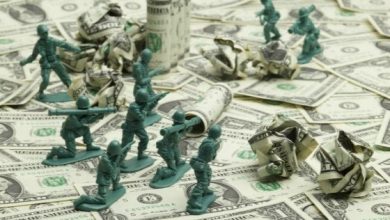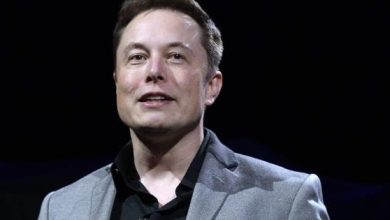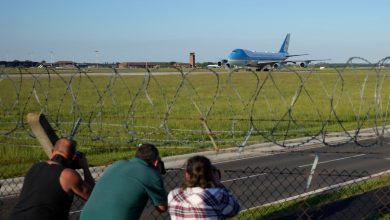The Overhyped Threat of a Human Bird Flu Pandemic is a Hoax to “Reset” Our Food System

This article was originally published by Rhoda Wilson at The Daily Exposé.
If the bird flu were to suddenly be transmissible from person to person, there would be every reason to suspect gain-of-function bioweapons research. But, all the hype about whether the bird flu will become a human pandemic might just be a distraction.
The bird flu could be used as an excuse to shut down animal farming altogether. From the perspective of the business interests and billionaires behind the World Economic Forum, that would be the perfect way to force a shift from real farms to fake food.
And, food rationing might be the easiest way for them to get people to adopt digital IDs in anticipation of the imposition of central bank digital currencies.
In the following, as well as describing the history of bird flu bioweapons, Alexis Baden-Mayer names those who are behind the making of them. “There’s a significant overlap between the people, corporations, and institutions involved in gain-of-function bioweapons research and those involved in the push to replace real farms with fake food,” she writes.
Scamdemic Bird Flu: Vaccines for 33 Billion Chickens? Digital Food Rationing? The End of Animal Agriculture?
By Alexis Baden-Mayer, 11 April 2024
If the bird flu were to suddenly be transmissible from person to person, there would be every reason to suspect gain-of-function bioweapons research.
But, all the hype about whether the bird flu will become a human pandemic might just be a distraction.
There are certainly pharmaceutical companies that would benefit from a human bird flu pandemic but the industry might make even more money “preventing” a human pandemic by vaccinating farm animals, especially the world’s 33 billion chickens.
So far, the US government’s response to the bird flu has been to kill millions of chickens – 85.87 million birds killed since 2022.
From an animal welfare perspective, it’s viciously cruel. From a sustainable agriculture perspective, it’s senseless. From a food justice perspective, it means skyrocketing food prices, more hungry people, and worse food quality.
We’re going to be told that the only alternative to mass killings is vaccination (and probably only risky experimental mRNA shots, at that) but animal welfare advocates, regenerative organic farmers, and vaccine safety experts know better.
Would the pharmaceutical companies be willing to create a full-blown food crisis for the opportunity to vaccinate 33 billion chickens? Probably, but there are plenty of bad actors who would see opportunities in a food crisis.
The biggest meat companies would love to consolidate their control of the food system by getting rid of the last remaining independent family farmers.
The World Economic Forum, the billionaires and the biotech companies would love to replace real farms with fake food.
These same globalists are always looking for new reasons why countries should give up their national sovereignty over public health policy to the World Health Organisation.
They might just want to pick up where their vaccine passport idea left off, and use digital IDs to ration food as Iran has done, and then replace the dollar with a central bank digital currency that functions as a social credit system.
Only time will tell. We must protect the world we love in the meantime. While you still can, buy your food directly from local family farms in cash!
If you want the details, read on. If you’re ready to take action, tell your state legislators to resist the World Health Organisation’s power grab.
Seven Things to Know About the Bird Flu
1. If the bird flu is suddenly transmissible from person to person, suspect gain-of-function bioweapons research.
Even as the so-called “public health” establishment gins up human cases – it’s a safe bet that any factory farm worker would be sick and have viruses up their nose after breathing manure all day – they are currently insisting there’s no person-to-person spread, the public health risk is low and the food from animals that test positive is safe to eat.
But, as Christian Westbrook reported in 2022, former Centres for Disease Control and Prevention (“CDC”) Director Robert Redfield predicted on national television that bird flu would jump to humans and be highly fatal, triggering a “Great Pandemic” for which COVID-19 was a mere warm-up.
I suspect this is only fear-mongering to be used as an excuse to continue with the mass killing of asymptomatic birds and at some point “necessitate” the vaccination of billions of animals.
However, it wouldn’t completely surprise me if the “low public health risk” message coming out of US regulatory agencies right now were to suddenly shift to “it’s an emergency” when they decide the timing’s right.
That would be like the covid roll out, where the World Health Organisation’s January 2020 “no clear evidence of human to human transmission” message switched in March 2020 to “find, isolate, test and treat every case and trace every contact” ushering in global lockdowns and a race to vaccinate.
As with false flag attacks, it may very well be part of effective plandemic storytelling to have a period of inexplicable inaction that can later be blamed for the situation metastasizing out of control and necessitating drastic action.
If that happens, there’s every reason to blame gain-of-function bioweapons research.
I’ve investigated the history of “gain-of-function” bioweapons research on the bird flu, and as I wrote in 2022, in ‘Stop Pandemic Bird Flu’, human-adapted H5N1 has a very curious origin.
The first human H5N1 outbreak occurred in Hong Kong in 1997, the year of what the British call the “Hong Kong handover,” when sovereignty over Hong Kong was transferred from the UK to China.
It was during this “politically sensitive” year that Kennedy Shortridge, an Australian scientist who was the director of the World Health Organisation’s reference laboratory at the University of Hong Kong, confirmed human cases of highly pathogenic bird flu.
Shortridge had been studying how avian influenza viruses might spread to humans since 1975. Before discovering H5N1, Shortridge eerily predicted its emergence. As Frank Ching reported in ‘Bird Flu, SARS and Beyond’:
As early as 1982, Shortridge had labelled southern China, where humans and domestic animals lived in close proximity, “an epicentre for the origin of pandemics.” Ten years later, he called southern China a “virus soup” and warned that pandemic influenza was a zoonosis, that is, it could be transmitted from animals to humans and, in 1995, he warned that influenza in southern China could not properly be called an “emerging” infection because it was constantly lurking. “Elusive might be more apt,” he wrote.
An example of Shortridge’s penchant for such predictions is his 1995 Lancet article ‘The next pandemic influenza virus?’. Curiously, H5N1 emerged two years later, in 1997, in the same city where Shortridge worked, Hong Kong.
At the time, the natural leap of a flu directly from poultry to humans was thought to be so unlikely that scientists first suspected contamination from Shortridge’s lab was the cause of the highly improbable H5N1 diagnosis.
That contamination could only happen if Shortridge had already been working with H5N1 in the laboratory, and indeed he was. Time magazine reported, “In an earlier study, conducted with great discretion, his lab had found that residents of rural Hong Kong had antibodies to all the known bird-flu viruses.”
Shortridge’s colleague Yuen Kwok-Yung was the one who attended to Hong Kong’s H5N1 patients and devised a rapid diagnostic test known as RT-PCR to analyze respiratory secretions from these patients. As they published in the Lancet, this was the first time that a purely avian virus had been isolated from people with respiratory disease and the first time that a PCR test was used for rapid diagnosis of such patients in a clinical setting.
The 1997 Hong Kong H5N1 virus was unique in every respect.
Time magazine reported, “On the H gene at a point called the cleavage site, [was] found a telltale mutation, the same kind of mutation found in other highly pathogenic avian viruses. …The virus … had regions that were identical to portions of [an] avian virus that struck Pennsylvania [chickens] in 1983.”
The L.A. Times reported, “The H5 piece came from a virus in a goose. The N1 piece came from a second virus in a quail. The remaining flu genes came from a third virus, also in quail.”
H5N1 didn’t cause disease in humans until this potential had been studied in a laboratory for several years.
Anthony Fauci had been funding Yoshihiro Kawaoka and Ron Fouchier’s efforts to get bird flu to leap to humans since 1990 and their work was connected to what Shortridge was doing in Hong Kong. For seven years before the first human H5N1 outbreak in 1997, Fauci had been funding Kawaoka’s gain-of-function bird flu research at St. Jude Children’s Research Hospital. And Kawaoka’s mentor there, Robert G. Webster, was working and publishing with Shortridge. Every year, Webster spent three months working with Shortridge at the University of Hong Kong, according to THIS profile of Webster which mentions Kawaoka as his protege.
The eeriest connection between Shortridge and Webster’s laboratories is that Yoshihiro Kawaoka had studied the avian virus that struck Pennsylvania chickens in 1983 and was the closest known relative of the 1997 Hong Kong H5N1. According to Time magazine:
Webster assigned a young scientist, Yoshihiro Kawaoka, to try to figure out how the virus transformed itself into such a “hot” pathogen. Kawaoka, now a professor of virology at the University of Wisconsin, Madison, compared the genetic structure of viruses from the first and second waves and found only a single, extremely subtle change in the H gene. The two viruses differed by just one nucleotide – one of 1,700 nucleotides that made up the gene.
In 1997, Fauci rewarded Shortridge and Webster’s team for the Hong Kong H5N1 outbreak by creating and funding the St. Jude Centre of Excellence for Influenza Research and Surveillance which continues to operate today in the US, Canada, Bangladesh, China, Colombia, and Egypt.
Webster was one of the first gain-of-function scientists, publishing a successful creation of a recombinant virus in 1973. As Lyle Fearnley writes in ‘Wild Goose Chase’:
For an influenza pandemic to arise, a new form of the virus is necessary, one able to escape the immune responses cultivated by human populations during previous flu outbreaks. The American Robert Webster had previously shown that such new viruses can be experimentally produced in the laboratory: taking viruses derived from different species, he co-infected a single animal host, a process that Webster and his co-authors observed had encouraged the two viruses to swap genetic material and create “recombinant” forms.
There’s also a connection to Fouchier, through his mentor at the Erasmus Medical Centre in Rotterdam, the Netherlands, Jan De Jong – also a colleague and collaborator of Shortridge and Webster’s.
Kawaoka’s colleague and mentor Robert G. Webster and Fouchier’s colleague and mentor Jan De Jong were the first scientists outside of Hong Kong to receive samples of the 1997 H5N1 flu from Shortridge’s laboratory.
De Jong is often credited with being the one who identified the 1997 Hong Kong flu as H5N1, but he did so with “a panel of reagents to every type of flu strain yet known” that had been brought from Webster’s laboratory in Memphis to the National Influenza Centre in Rotterdam.
Kawaoka and Fouchier are of the post-Biological Weapons Convention era where the weaponization of pathogens is euphemistically called “gain-of-function” research, but their older colleagues, De Jong, Shortridge, and Webster came of age before 1972 and their mentors were of the pre-Biological Weapons Convention era when virologists knowingly and openly engineered viruses for military purposes.
Shortridge and Webster were trained by Frank Macfarlane Burnet who served on the Australian Department of Defence’s New Weapons and Equipment Development Committee in the 1940s and 50s. The Federation of American Scientists lists some of the most chilling things Burnet recommended:
Burnet … said Australia should develop biological weapons that would work in tropical Asia without spreading to Australia’s more temperate population centres.
“Specifically to the Australian situation, the most effective counter-offensive to threatened invasion by overpopulated Asiatic countries would be directed towards the destruction by biological or chemical means of tropical food crops and the dissemination of infectious disease capable of spreading in tropical but not under Australian conditions.”
… Burnet argued that Australia’s temperate climate could give it a significant military advantage.
“The main contribution of local research so far as Australia is concerned might be to study intensively the possibilities of biological warfare in the tropics against troops and civil populations at a relatively low level of hygiene and with correspondingly high resistance to the common infectious diseases.”
[The report] ‘Note on War from a Biological Angle’ suggest[ed] that biological warfare could be a powerful weapon to help defend a sparsely populated Australia… [he] urged the government to encourage Australian universities to research areas of biological science of relevance to biological weapons.
“The main strategic use of biological warfare may well be to administer the coup de grace to a virtually defeated enemy and compel surrender in the same way that the atomic bomb served in 1945. Its use has the tremendous advantage of not destroying the enemy’s industrial potential which can then be taken over intact. Overt biological warfare might be used to enforce surrender by psychological rather than direct destructive measures.”
In a report … Burnet concluded that “In a country of low sanitation the introduction of an exotic intestinal pathogen, e.g. by water contamination, might initiate widespread dissemination.”
“Introduction of yellow fever into a country with appropriate mosquito vectors might build up into a disabling epidemic before control measures were established.”
[And] …”the possibilities of an attack on the food supplies of S-E Asia and Indonesia using B.W. agents should be considered by a small study group.”
Another important moment in the bird flu timeline came in February 2009 when the pharmaceutical company Baxter combined the H3N2 flu that commonly infects humans with the highly pathogenic avian influenza H5N1 in “experimental virus material” that was accidentally distributed to subcontractors in the Czech Republic, Slovenia and Germany. The mistake was discovered when the material killed ferrets in a test conducted by researchers who believed they were working with a common seasonal flu. Baxter never explained what happened.
An H1N1 swine flu pandemic began the next month, March 2009. The US government gave Baxter contracts to produce swine flu vaccines despite the H5N1 contamination incident. “Coincidentally,” Baxter had filed a patent on its H1N1 vaccine the year before.
In August 2009, a man named Joseph Moshe was violently arrested in a dramatic event known as the Westwood standoff. That much is true, but I have not been able to confirm reports that he was an Israeli biological weapons scientist or the following claim that he was arrested for blowing the whistle on Baxter’s production of bioweapons in Ukraine:
Joseph Moshe had called into Dr. A. True Ott on Republic Broadcasting two days before his arrest on 13 August 2009, claiming to be a microbiologist who wanted to supply evidence to a States Attorney regarding tainted H1N1 Swine flu vaccines being produced by Baxter BioPharma Solutions.
He said that Baxter’s Ukrainian lab was in fact producing a bioweapon disguised as a vaccine. He claimed that the vaccine contained an adjuvant (additive) designed to weaken the immune system, and replicated RNA from the virus responsible for the 1918 pandemic Spanish flu, causing global sickness and mass death, the plague…
Joseph Moshe is a bio-scientist working for a unit within Mossad. He is an Israeli citizen.
When a deadly disease hit Ukraine later that year in October 2009, rumors circulated that it was H5N1 spread via vaccines or aerial spraying. The official story was that it was the same H1N1 that other countries were experiencing, but the transmissibility and symptoms were far more severe.
If the bird flu started spreading person to person for the first time, gain-of-function watchdogs would rightly point to Kawaoaka and Fouchier’s laboratories and scour the genetic code of the new virus for similarities to the ones they had published.
But, as Dilyana Gaytandzhieva reported in ‘Potential pandemic bird flu modified to be more dangerous in new risky NIH research’, Anthony Fauci created a global gain-of-function bird flu network known as the Centre of Excellence for Influenza Research and Surveillance (“CEIRS”) – and the weaponized bird flus he commissioned can be found in labs all over the world.
2. Spending millions of dollars to kill millions of chickens isn’t working.
The bird flu pandemic has been going on for decades but it’s only affected poultry, so the cruelty, waste, and illogic of the bird flu response has garnered little attention.
With COVID-19, people who are asymptomatic but test positive are expected to quarantine.
With bird flu, flocks that are asymptomatic but test positive are destroyed en masse.
Joel Salatin, quoted in a recent article by Dr. Joseph Mercola explains why that’s so insane:
“The policy of mass extermination without regard to immunity, without even researching why some birds flourish while all around are dying, is insane. The most fundamental principles of animal husbandry and breeding demand that farmers select for healthy immune systems.”
The answer is relatively simple. Save birds that survive the infection and breed them. That way, future generations will have natural immunity. “If a flock gets HPAI, let it run its course. It’ll kill the ones it’ll kill but in a few days, the survivors will be obvious. Keep those and put them in a breeding program,” Salatin writes.
That’s what Will Harris of White Oak Pastures did. He raises healthy animals outdoors. In a recent video, he makes the case that regenerative organic farmers have no reason to fear the bird flu.
Mass killings don’t make a lick of sense, that’s what’s been happening for 25 years as a national program and since the 1980s at the state level.
Since 2000, there’s been a national program to test farmed poultry under the National Poultry Improvement Plan’s “US Avian Influenza Clean” program. There were state programs for universal bird flu testing that pre-date the national program.
Highly Pathogenic Avian Influenza (“HPAI”) was considered a threat to egg, chicken and turkey farming. However HPAI did not exist in the United States, so the program tested for Low Pathogenic Avian Influenza (“LPAI”), which caused few or no clinical signs in infected birds.
Even though they weren’t sick, birds that tested positive for LPAI were culled based on the idea that the H5/H7 subtypes of low pathogenic avian influenza could mutate into highly pathogenic avian influenza.
An outbreak in 1983–1984 prompted the destruction of more than 17 million birds at a cost of nearly $56 million. The involvement of the gain-of-function hall of shamer Yoshihiro Kawaoka in this incident and the fact that it pre-dated the politically suspicious 1997 Hong Kong outbreak where there were human bird flu cases suggest that there’s more to this story than most people realized.
In 1996–1997, a number of table-egg farms in Pennsylvania tested positive for an H7N2 avian influenza virus that was non-pathogenic to chickens but the Pennsylvania Agricultural Department ordered nine flocks to be depopulated.
In 2002, nearly 4 million birds were killed under State and Federal authority in Virginia and Texas due to outbreaks of H7 LPAI (in Virginia) and H5 LPAI (in Texas). The US Department of Agriculture’s APHIS provided compensation to the poultry owners and contract growers at the rate of $10 per bird, spending close to $40 million on the effort.
In 2006, the national test-and-destroy program was expanded from breeding flocks to commercial poultry.
Spending millions of dollars killing millions of otherwise healthy birds every time a flock tested positive for Low Pathogenic Avian Influenza, didn’t keep Highly Pathogenic Avian Influenza at bay.
In 2015, HPAI H5 virus outbreaks – including H5N2 and H5N8 viruses – were reported in commercial poultry flocks in 21 US states. According to the inappropriately titled, ’When poultry take a sick leave: Response costs for the 2014–2015 highly pathogenic avian influenza epidemic in the USA’, $879 million was spent to kill 51 million birds.
In 2016, 414,000 birds were killed after they tested positive for H7N8 HPAI/LPAI in Indiana.
In 2017, HPAI was found in Tennessee; 253,000 birds with LPAI were killed in four states including Alabama, Kentucky and Georgia.
In 2020, a South Carolina turkey flock with 32,577 birds was destroyed after HPAI was detected.
3. Killing asymptomatic birds is cruel.
In 2021, the Humane Society of the United States, Mercy for Animals, and Farm Sanctuary challenged the United States Department of Agriculture’s (“USDA’s”) avian influenza response plan and won a settlement. According to Farm Sanctuary:
USDA’s cruel and irresponsible plan relies on and incentivises “depopulation” (the mass slaughter of innocent animals) to contain bird flu outbreaks rather than doing anything to address the stressful and overcrowded factory farm conditions that make such outbreaks virtually inevitable.
The USDA sought to dismiss the lawsuit, but a California federal judge ordered in March 2021 that the case should move forward, and ultimately, the parties were able to reach a settlement. While this victory will not immediately stop the mass killings of birds on factory farms or prevent the agency from spending hundreds of millions of taxpayer dollars bailing out agribusiness when flocks are “depopulated,” it will require USDA to produce an Environmental Impact Statement (EIS) addressing the devastating impacts of a plan that involves killing millions of birds and disposing of their bodies in unlined pits or burning them.
We hope the agency will realise the foolishness of its plan and adopt an alternative that seeks to prevent bird flu outbreaks in the first place by addressing the horrendous overcrowded conditions in factory farms, as suggested in our lawsuit. Adopting such an alternative could stop the senseless killing of tens of millions of animals and save taxpayers hundreds of millions of dollars.
In January 2023, the USDA published a ‘Notice of Intent to Prepare an Environmental Impact Statement for Highly Pathogenic Avian Influenza’, but has not yet taken further action.
Meanwhile, we’re in the midst of the largest-ever destruction of flocks in history, which has been ongoing since 2022, with 85.87 million birds killed as of 10 April 2024.
These birds are not dying from the flu. They’re asymptomatic, they’re being massacred and the more birds are killed the more HPAI cases there are.
One hint that this is a scam is that the government and their stenographers in the media never mention how many birds die from the flu versus being killed for testing positive. Since we never hear about birds dying from the flu, we can only assume that all the birds being killed are asymptomatic.
4. Farmers aren’t complaining about killing asymptomatic birds, because they’re getting paid to do it.
The government is guaranteeing farmers and poultry companies market prices and disposal costs when they destroy their flocks. It’s hard not to see that as a perverse incentive for an industry that’s been getting bigger in a way that could only crash prices.
The Environmental Working Group reports that the largest chicken farms increased by 17 percent, from 6,332 farms with 500,000 or more birds in 2012 to 7,406 farms in 2022.
There were 24 percent more chickens produced in these facilities in 2022 than in 2012 – almost 1.4 billion more.
At the same time, the number of farms raising broiler chickens shrunk between 2012 and 2022, decreasing three percent from 32,935 broiler chicken farms in 2012 to 31,877 in 2022.
More birds have been concentrated into fewer broiler operations because at the same time that the number of farms went down by three percent, the number of animals increased by eight percent, from almost 8.5 billion birds in 2012 to almost 9.2 billion in 2022.
Farming is a notoriously high-risk, low-margin enterprise, and poultry farmers are serfs on their own land caught in terribly abusive contracts with the chicken companies. Faced with testing positive for HPAI, no farmer would be able to refuse a buyout in exchange for destroying the flock.
That’s why we aren’t hearing poultry farmers complain about any of this.
5. The egg and chicken companies aren’t complaining; they’re enjoying higher prices. They don’t care if people go hungry.
Covid increased hunger. The cruel and wasteful bird flu strategy of killing asymptomatic birds could cause an even worse food crisis. Already, prices are rising.
Yahoo is reporting, “Eggs jumped to $3 per dozen in 2024, double the cost of $1.45 in February 2020. However, prices are down from 2023, when a dozen eggs cost $4.82, according to USA Today statistics.”
Fox News says, “Boneless chicken breast has increased in price 26%, from $3.26 per pound in January 2021 to $4.11 per pound in February 2024.”
Low supply means higher prices and lower quality.
Chick-fil-A is dropping a decade-old “no antibiotics ever” pledge, claiming they just can’t source enough antibiotic-free chicken. Do they mean, “at the right price”?
6. Higher egg and chicken prices, and lower quality, could make Frankenfoods more competitive.
While conscientious animal advocates are pressing the USDA to invest in higher-welfare farming to keep flocks healthy, Frankenfood vegans are cheering on HPAI, despite the mass killings, celebrating what they see as the inevitable triumph of synthetic genetically modified organisms over animal farming.
Factory farming is awful and it’s hard to be sympathetic to people in that industry but synthetic biology and laboratory-grown meat aren’t any better. That switch would leave control of the food system in the hands of the exact same companies and evil billionaire investors – except with a tighter grip – and I wouldn’t put it past them to exaggerate, exacerbate or even plan a bird flu crisis to accomplish their goal of driving the last remaining independent farmers out of business and replacing real farms with fake food.
If that doesn’t seem possible to you, watch ‘The Hostile Takeover of Food Production’, an interview Christian Westbrook of Ice Age Farmer did with Dr. Frédéric Leroy, a Belgian professor of food science and biotechnology.
They confirm that it isn’t idealistic vegans who are driving the transition from real farms to fake food, it’s a well-coordinated and very powerful network of the super-rich who have nothing less than world domination as their goal. This is the same conclusion I came to when I reviewed the history of the fake meat movement for my presentation on ‘The Plot to End Farming’.
In 2019, the World Economic Forum projected that one-third of the global meat supply would be displaced by fake meat within 10 years, in 20 years that would double to 60 per cent, and “the disruptive effect of new biotechnology methods will go beyond meat into milk, egg white, gelatine and fish products.”
The World Economic Forum and the Bill & Melinda Gates Foundation co-hosted the high-level 2019 covid rehearsal Event 201 organised by the Johns Hopkins Centre for Health Security. That timely and eerily predictive tabletop exercise was funded by Facebook co-founder Dustin Moskovitz’s Open Philanthropy.
So, we have every reason to be concerned that, at its annual meeting in Davos this year, the World Economic Forum was preparing for disease X.
The mass killing of asymptomatic birds has been slowly shrinking the egg and chicken supply and raising prices. Could the bird flu be used as an excuse to shut down animal farming altogether?
From the perspective of the business interests and billionaires behind the World Economic Forum, that would be the perfect way to force a shift from real farms to fake food.
And, food rationing might be the easiest way for them to get people to adopt digital IDs in anticipation of the imposition of central bank digital currencies (“CBDCs”).
As Christian Westbrook reported in 2022, this has already happened in Iran (see ‘Iran: Digital Food Rationing rolls out using Biometric IDs amid food riots’).
7. With 33 billion chickens to vaccinate globally, pharmaceutical companies will get rich quickly but there are plenty of bad actors seeing opportunities in a food crisis.
There’s a significant overlap between the people, corporations, and institutions involved in gain-of-function bioweapons research and those involved in the push to replace real farms with fake food. The thing that binds them is the technology. The same genetic engineering and synthetic biology techniques are used to create Frankenfoods and Frankenpathogens.
The links between these two worlds are exemplified by Ginkgo Bioworks, the leading genetic engineering and synthetic biology company, and Bayer (Monsanto)’s favorite organism company.
If you want to be afraid, very afraid, of what this means for humanity, check out Ginkgo’s SEC risk report. It reads like the script for a pandemic disaster flick. And, then read this study Ginkgo Bioworks conducted that predicts animal-to-human infections could cause 12 times more deaths by 2050. And, then consider that Ginkgo Bioworks is a World Economic Forum partner launched with support from Open Philanthropy and invested in by Bill Gates.
Wow, that’s weird. All you need is Johns Hopkins, and you’ve got the Event 201 team.
Oh, wait … yup, also in 2019, the Johns Hopkins Centre for Health Security and Ginkgo Bioworks convened a meeting in Washington, DC, to plan government action to strengthen the biotechnology industry. The meeting was funded by Open Philanthropy.
President Joe Biden made the group’s demands law by executive order in 2022. On the same day, the President tapped Dr. Renee Wegrzyn, Ginkgo’s Vice President of Business Development, to lead Biden’s new Advanced Research Projects Agency for Health – an agency Whitney Webb warned “could make the US a digital dictatorship.” And, now Ginkgo founder and CEO Jason Kelly chairs the National Security Commission on Emerging Biotechnology.
Ginkgo Bioworks is a pandemic profiteer that pivoted to the easy money in covid testing in 2020 but it became a real player in the covid story when it bought Metabiota in 2022.
The Ginkgo-Metabiota merger was very much like the Bayer-Monsanto merger, in that it was a great way to retire an infamous name.
Metabiota’s advisor was Jeffrey Epstein. Its funders were evil tech billionaires, the Pentagon and the CIA. Its lobbying firm was Hunter Biden’s, Rosemont Seneca. Its projects were bungling the 2014 Ebola response, setting up bird-flu biolabs in Ukraine, and collecting bat coronaviruses in China for Ralph Baric with EcoHealth Alliance and the Wuhan Institute of Virology.
When Ginkgo bought Metabiota, it didn’t just retire its infamous name, it retired its founder Nathan Wolfe, a scientist friend of Jeffrey Epstein and Ghislaine Maxwell who was a World Economic Forum Young Global Leader. Wolfe, who was caught in all the wrong scandals and photographed with all the worst people, may not have gotten a job at Ginkgo Bioworks after the merger, but Nita Madhav – who Wolfe hired at Metabiota in 2015 and became its CEO in 2019 – did.
Now, Nita Madhav runs Concentric by Ginkgo, now known as Ginkgo Biosecurity, which is basically just Metabiota with a new name. Ginkgo Biosecurity runs Metabiota’s Epidemic Tracker and there’s still a link from the Metabiota website to the tracker.
At Ginkgo Biosecurity, Madhav does what she was hired by Wolfe to do at Metabiota: to use “artificial intelligence” to “predict” pandemics. Here’s the oh-so-scientific way they did this according to an interview Madhav did with NPR’s Marketplace on February 4, 2020 (!):
“The AI firm Metabiota assesses a disease – its symptoms, death rate and availability of vaccine – and then surveys people on how much that disease scares them. It found this coronavirus has a high ‘scariness’ index.”
As Madhav knows, Metabiota wasn’t just “predicting” pandemics, it was helping to create them. The company was right there with EcoHealth Alliance and the Wuhan Institute of Virology in Southern China collecting the bat coronaviruses they would send to Ralph Baric for his infamous 2015 gain-of-function experiments and would later be revealed as the closest known relatives of SARS-CoV-2 in 2020.
Metabiota’s investors included Hunter Biden’s Rosemont Seneca, Google, and the Bill & Melinda Gates Foundation. Hunter Biden’s laptop revealed that he had been lobbying his father’s administration to get lucrative Pentagon contracts for Metabiota in Ukraine where they were setting up bird-flu-researching biolabs with Black & Veatch and working on a mysterious government-funded “Ukraine Science Project” with gas company Burisma, which was paying Hunter more than $80k a month to sit on its board.
It was when the news media finally started reporting on this, because Russia kept bringing it up in the context of the war in Ukraine, that Ginkgo Bioworks bought Metabiota and retired its scandal-plagued name.
Around the same time, Ginkgo Bioworks adopted an orphaned covid-origins cover-up run by the Intelligence Advanced Research Projects Agency called FELIX (Finding Engineering-Linked Indicators). The goal of FELIX was to prove that SARS-CoV-2 wasn’t genetically engineered in a lab, but its poorly referenced “findings” were prematurely released way back in January 2020. Ginkgo resurrected the project with little fanfare in 2022.
It’s very strange that Ginkgo would get an important new government grant in 2022, given that it was the subject of a scathing Scorpion Capital investigation just the year before. The Scorpion report quoted a former Ginkgo employee who claimed that Ginkgo regularly overcharged and defrauded the government and witnessed this happening to the Pentagon’s Defence Advanced Research Projects Agency (“DARPA”): “I just got the sense it happened all the time. I saw them actually make it. I saw the spreadsheet.”
Arguing that Ginkgo stock was worthless, the Scorpion report made clear that there was nothing special about Ginkgo Bioworks’ technical capacities:
“[S]ynthetic biology is a meaningless term and may as well be a synonym for publicly-traded scam. Allow us to offer a more precise definition: using widespread 50-year-old genetic engineering tools to tweak yeast cells to excrete mostly low-value industrial inputs like flavours, fragrances and drug ingredients. This is the essence of the mysterious foundry – Ginkgo is nothing more than a commodity strain engineering CRO [contract research organisation], and a crappy one at that according to its own related-party ‘customers.’ Before stock promoters claimed the term ‘synthetic biology,’ it was and is still known as microbial or strain engineering.”
It looks like Scorpion was right. Initially offered at $11.15 in 2021, a share of Ginkgo stock was worth $1.12 when the market closed on 10 April 2024.
So why is Ginkgo Bioworks the go-to microbial engineering company of the billionaires, the Pentagon, and the CIA? Maybe it suits them to partner with a company comfortable with shell games and fraud, with no real customers to speak of and it’s stock in free-fall? If the plan is to launch a bird flu scamdemic that drives independent family farmers out of business, and shrinks the food supply, while jacking up food prices and driving business from real farms to fake meat, maybe Ginkgo is the ideal partner? The more corrupt and vulnerable they are, the less likely they’ll be to object no matter how the government decides to use their services.
A bird flu pandemic might help turn things around for Ginkgo. They could get more government money to test for bird flu. They might even get some special projects from former Ginkgo VP Renee Wegrzyn at ARPA-H.
I hope I’m wrong about all of this, that the synergy between genetically modified organisms, gain-of-function, and the unholy trinity of Pharma, Frankenfoods, and Pandemics, has nothing to do with whether the bird flu becomes a crisis or how it will be handled if it does.
In the meantime, I’m watching the players profiled in this article for hints as to what might happen next. On 8 April 2024, Concentric by Ginkgo tweeted this article in Nature, ‘Bird flu outbreak in US cows: why scientists are concerned’.
About the Author
Alexis Baden-Mayer is the Political Director of the Organic Consumers Association. She publishes articles on a Substack page titled ‘The Scamerican Century’ which you can subscribe to and follow HERE.







